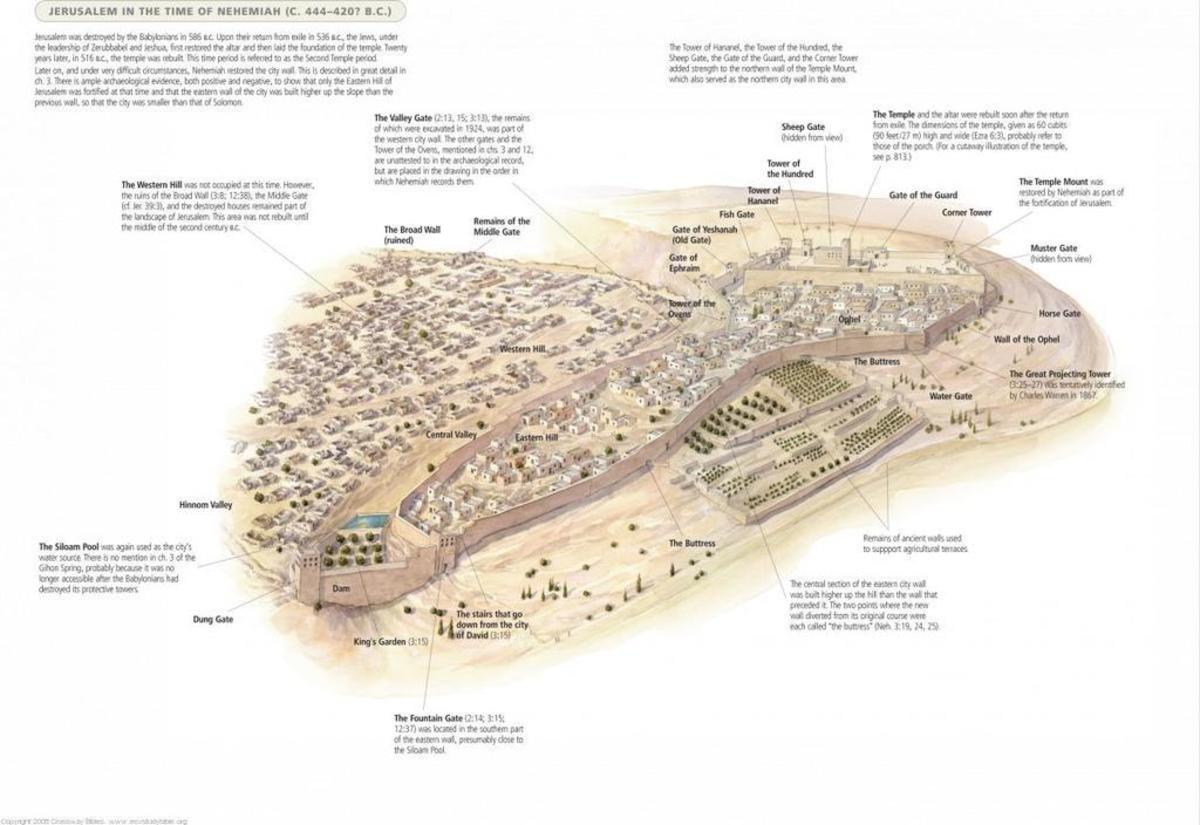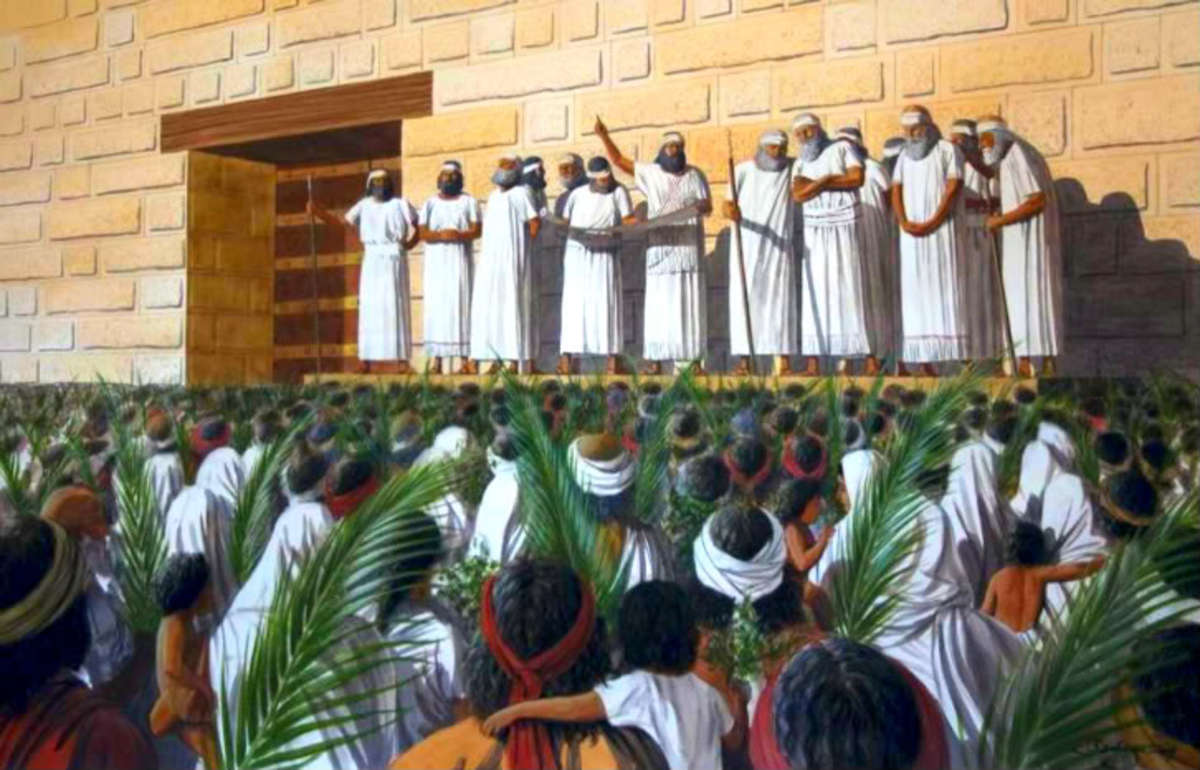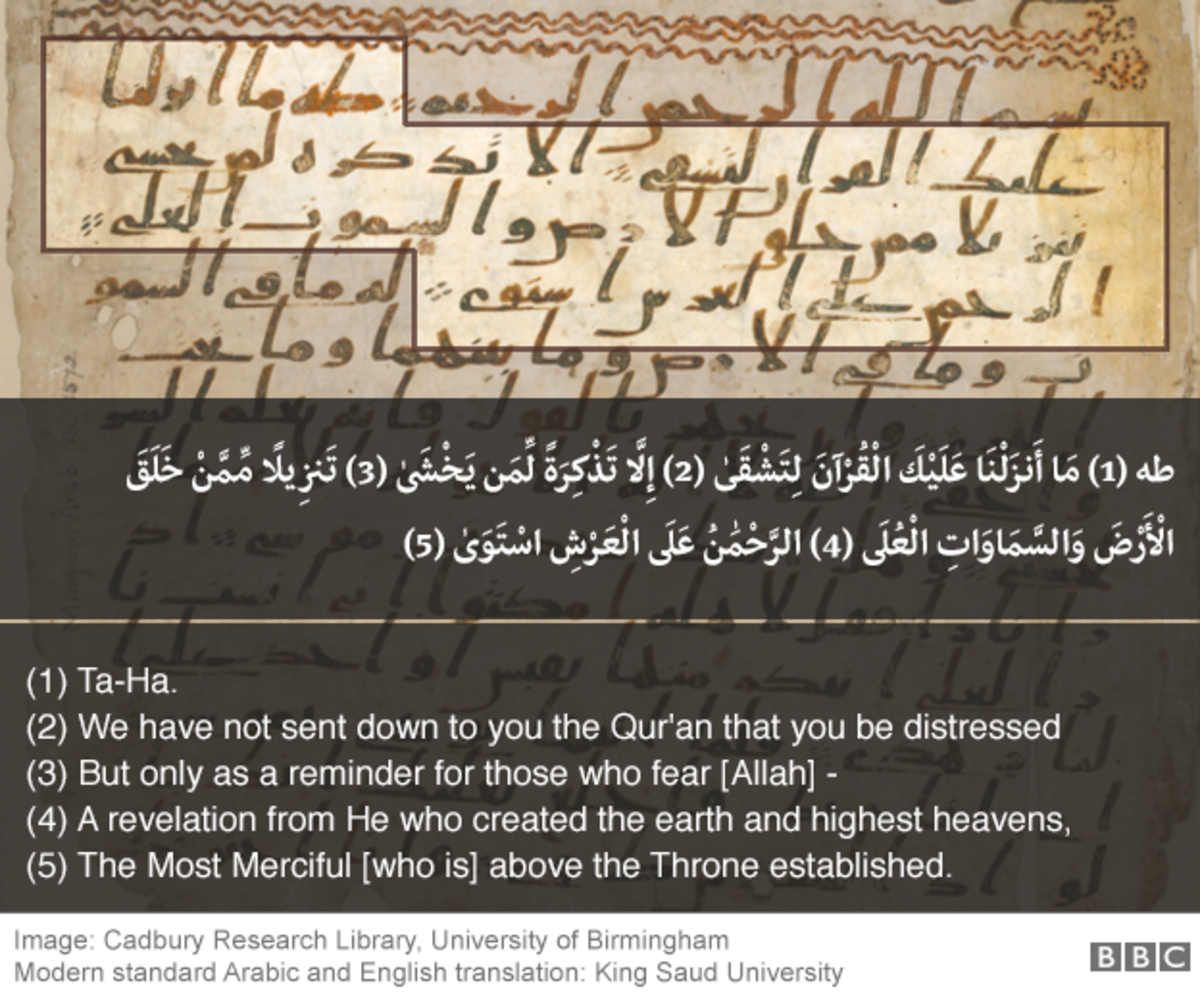Ezra & Nehemiah Under Scrutiny - Scholarly Fraud According To The Quran - III
Modern Pharisaic Jews - A Legacy Of Ezra

"...worship God [as] One."
This series of articles on the general period of Ezra was inspired by a June 2010 article by a Karaite Jew, Allen Goldenthal/Kahana, a uniquely qualified writer, a man of Pharisaic upbringing who returned to his biblical roots, having strong family connections to the Aaronic bloodline in unbroken male succession.
(36) And the Jews said, “Ezra; Son of God,” and the Netzerim said, “Messiah; God's Son.” Their saying, that, with their mouths. They imitate a saying [of] those who disbelieved from aforetime. God defy them! How beguiled they are! (37) They have taken their sages and their monks as-exalted-ones from other than God, also the Messiah, son of Miriam. And they were not commanded to do other than that they worship One-God. Other than Him is not God. Glory be to Him from what they associate. (38) They seek to extinguish God's light with their mouths, but God refuses except to perfect His light, even if the disbelievers contend (S61:8).
Earlier I touched on how Ezra was elevated in status. The term, son of God, is found in quite a number of places within the Tanakh and according to differing contexts. Now let us briefly examine the last case first. For one particular instance, it is written, you [are] sons to Yehovah, your God... (Deut.14:1). Elsewhere one may be deemed, sons of prophets, a son of death, and many other things, some of which are anthropomorphic. Yet the focus must be on the Davidic theme as a prophesy of a royal leader over Israel (2Sam.7:14). Then, although the subsequent Netzerim saying (the word Christian is never used once in the Qur'an, instead there is an Arabic form of the Gospel Hebrew carried through in the Greek texts) is worded identically, it has to be read in the Qur'anic context as if Messiah is “God-The Son”, as though by physical relations and a form of triune god. Anything other than that would exclude Yeshua as Messiah, or even any other form of Davidic Messiah as non-muslim apostates (Allah defines Abraham, Solomon, Sheba, and Yeshua's Twelve as muslims in the Qur'an). This Son of God metaphor may be compared with the transition under Yeshua to sons of his not being directly from his seed (Ps.89:29-30, 36). The point is that the majority of those claiming to believe actually adopted idols in the form of men and thought they were worshiping God by obediently following their blind leaders (S9:31-32). They all followed a rallying cry without understanding its hidden meaning. Allah speaks of the Arian controversy.
In conclusion it was Ezra and his allies who conspired to become a leading clique, a secret society, governing religious affairs through Ezra's reforms, persuading the influential but somewhat unwitting Nehemiah as to the validity of the cause, and rewarding their own through property seizures whilst removing many potential enemies who were previously powerful, dividing families and creating factions in the fabric of their society. The case remains open in terms of what God was actually asking them to do. Either Ezra went way too far in altering what would become the Hebrew bible, creating differences in existing statutes, else there was actually a decree through Ezekiel to keep the Aaronic bloodline of Israel so that a Messiah with defined pedigree could emerge. Nehemiah achieved many things as a governor, but he learned after a time that the society he had shaped depended on an active chain of independent political command, despite having a High Priest. Ezra certainly sowed the seeds of Pharisaism, Orthodox Judaism, in a fragile society during a period of reform amidst a delicate situation where the survival of the remnant of Israel was but a mysterious promise, moreover he most certainly distorted the interpretation of Torah, whether intentionally or not, and he helped preserve it, even to this day.
(36) S9:30, (37) S9:31, (38) S9:32.
Ezra & Nehemiah Exposed
Beyond Nicaea - Drawing Conclusions
This addition to my own writings and presentation was inspired by, The Arian Heresy, 11 June 2010, https://fromthewritehand.blogspot.com/2010/ . Many of A. Goldenthal's writings were formerly readily available through HubPages.
There was a Libyan Priest in Alexandria by the name of Arius, stalwart in a more monotheistic theology than what was developing around him stemming from Origen, also of Alexandria, who had lived not long before him. He reasoned that Yeshua, as The Word, from the beginning of Creation, had to have been brought into existence at Creation, but the King of The Universe had to exist before Creation to bring about the act of Creation. Therefore he concluded, Yeshua could not be a version of the same being who wielded power, and Origen himself had concluded that The Word was of a different substance. That being the case, Yeshua should not be worshipped as The Father. The Bishop of Alexandria called for the excommunication of Arius before a local council but in the aftermath he found support among friends and some leaders.
Emperor Constantine I, having neatly knit together the pagan and Christian faiths through the Edict of Milan, whereas two years prior they were merely tolerated through Galerius, feared that this Arian disturbance would result in a major schism. He sent an emissary with an open letter but the debate resisted his efforts. Thus Constantine summoned a great council, in 325 AD, to Nicaea, resulting in the Nicene Creed.
Homoousios, of one substance, was the word that became doctrine at Nicaea. The majority stood against Arius but he challenged them on their creation, homoousios, a doctrine nowhere to be found in any biblical literature, and they ruled that Yeshua was Light from Light, and true God from true God, and that he was begotten, not made (cf. S6:101, 9:32, 112:3). From all this came a precedent for Synods to form divinely inspired statements of belief and canons of doctrinal orthodoxy. What this ultimately meant to the early adherents of Netzerim traditions was that they could no longer openly deny the Trinity and accept the Unity of God, alternatively you were deemed a heretic and tortured, killed or exiled.
© 2019 theomajor








